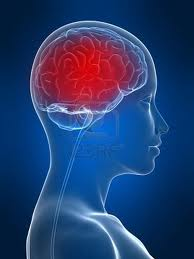Causes of Migraines
Everyone experiences migraines differently and the exact cause(s) for each person are equally unique. However, research has shown that migraines likely occur when there is a specific chemical imbalance in the brain (e.g., low/imbalanced serotonin and/or imbalanced estrogen/progesterone) which leads to neurological and biochemical events which affect the blood flow to the brain.
It is also believed that many migraine sufferers have an inherited sensitivity to specific triggers that produce inflammation in the blood vessels and nerves surrounding the brain that can increase the incidence of migraine headaches.
 Migraine Triggers
Migraine Triggers
There are several common triggers associated with migraine headaches. Not all individuals with migraines will be sensitive to every trigger, and you may very well have a trigger that is not on this list; however, these are the most common triggers:
- Environmental changes (e.g., weather, altitude, time zone changes)
- Strong odors, bright lights, loud noises
- Interrupted sleep patterns
- Hunger, fasting (this causes low blood sugar levels)
- Alcohol (especially red wine and beer)
- Smoking
- Caffeine
- Food additives (e.g., monosodium glutamate (MSG), nitrates)
- Hormonal changes in women (i.e., menses, birth control, HRT)
- Medications
- Stress
Other common causes of migraine headaches include complicated combinations of triggers including foods, food additives, allergies, constipation, liver malfunction, too much or too little sleep, emotional changes, sun glare, flashing lights, and lack of exercise.
Interestingly, most of these triggers also adversely affect neurotransmitter levels. For instance, stress, barometric pressure changes, interrupted sleep, alcohol use, food additives, smoking, allergies and many medications can all cause massive imbalances in serotonin and other neurotransmitters. Thus, it may be that people that are susceptible to these triggers are experiencing exaggerated effects due to neurotransmitter imbalance. If this is the case, correcting or improving their neurotransmitter function should dramatically reduce the incidence and severity of migraine headaches.
This is, in fact, exactly what we have found to be true.



